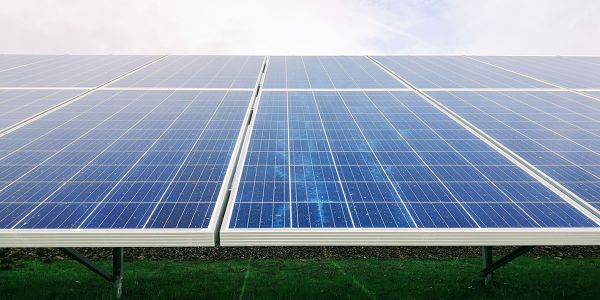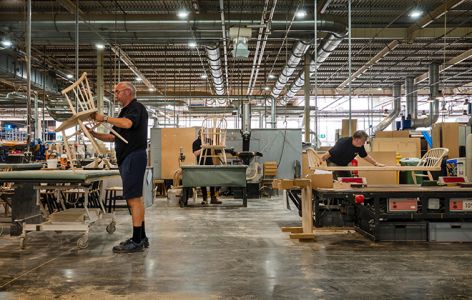- By Daniel Cope, Programme Manager, Low Carbon Workspaces
- 23 September, 2019

Share by email
The top 3 approaches for SMEs to mitigate against Brexit energy risks and tackle the climate emergency, outlined by Low Carbon Workspaces Programme Manager Daniel Cope.
By Daniel Cope, Programme Manager, Low Carbon Workspaces
Operation Yellowhammer (the leaked government document outlining the risks of an October no-deal Brexit) identifies that though there is no immediate risk to disruption, electric prices will inevitably increase should a no-deal follow.
As with the majority of consumables within the UK, the need to import from the EU is necessary; electric is no different. The nature of renewables causes peaks and troughs of energy production throughout the day, allowing for both import and export of electric to the EU where necessary (solar can only be produced when the sun is up!).
The UK currently imports about 7% of electric supply from its EU partners, with plans to raise this to 20% by 2025. This energy has no import duties at present. If a no-deal Brexit becomes a reality, there is a great deal of uncertainty on whether the UK will still have access to this shared market. Should this not be possible, UK businesses will pay more per kWh on their energy bills, as providers scramble to offset these costs.
As a business-consumer of energy, it seems a daunting task to mitigate against such rises, and many feel they are powerless to the whims of the industry.
Below are the top 3 approaches for SMEs to alleviate this growing liability and open up new business opportunities.
Reduce Energy Consumption
The first is to consider steps that can be taken in order to reduce a company’s energy consumption.
“Focusing on energy efficiency to mitigate potential Brexit-related risks is important, but even more so to help tackle the climate emergency, which represents a risk few businesses have really come to terms with,” says Phil Clarke, Buckinghamshire Business First member and Director of Consciam, a Buckinghamshire-based environmental consultancy that helps businesses understand and reduce environmental impacts and risks.
“Energy used in offices, factories and warehouses can often be the biggest single source of greenhouse gas emissions from a business,” says Phil. “Urgent action is necessary to reduce these emissions. Customers are becoming increasingly aware and demanding, and businesses will be a key part of the UK’s commitment to achieve net zero emissions, which may well drive up energy costs, especially those derived from fossil fuels.”
Happily, there are plenty of Buckinghamshire-based businesses already taking action – upgrading equipment such as lighting to LEDs, switching to electric vehicles and reducing waste. Read a collection of great case studies here >
Perry Braham at Alloy Weldcraft, a specialist wheel repair and refurbishment business in High Wycombe, used a grant from Low Carbon Workspaces to fund a new compressed-air cleaning system. Perry explains: “The new machines run more efficiently, reducing wheel cleaning time from 15 minutes to 3 minutes. It’s now less expensive to clean the wheels and made the machine and working environment much nicer as there’s much less dust and corrosive materials use.”
Perry adds: “The newer more versatile machines have also opened up new markets for us. I’d say they’ve given us a 20% edge, if not more, in terms of productivity.”
Switch to Renewable Green Tariffs
Secondly, businesses should also take this opportunity to look at where their energy comes from, as renewable “green” tariffs can often be cheaper than standard fossil fuels-based tariffs.
This is a hugely important and positive step, but not all renewable tariffs are as “green” as they claim, so do your research or speak to companies like Consciam.
Invest in Renewables
Finally, a company could consider producing their own energy in the form of solar. This guarantees that electric produced on-site will not be impacted by any political or environmental agenda (both of which will intensify in the coming years). Solar does have an upfront capital cost, though this investment will prove a smart one due to the lifecycle of solar panels.
Phil Clarke concludes: “The business case is powerful - taking steps to cut energy use and emissions can save money, reduce environmental impacts, improve competitiveness and provide opportunities for positive client, supplier and employee engagement on climate issues.”
Low Carbon Workspaces offers grant funding to businesses to invest in their workplace; reducing energy bills, carbon emissions and waste, and opening up opportunities to create sustainable growth.







